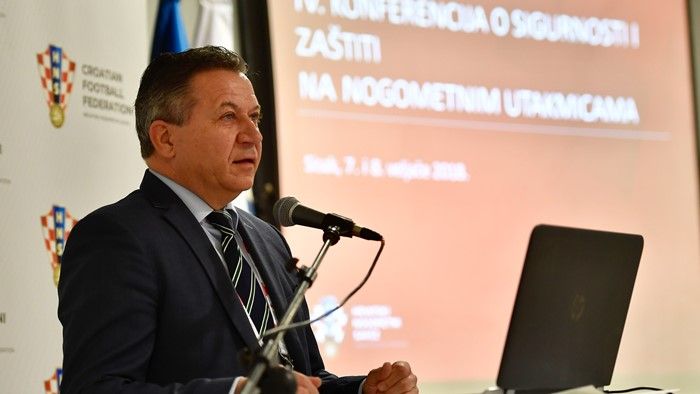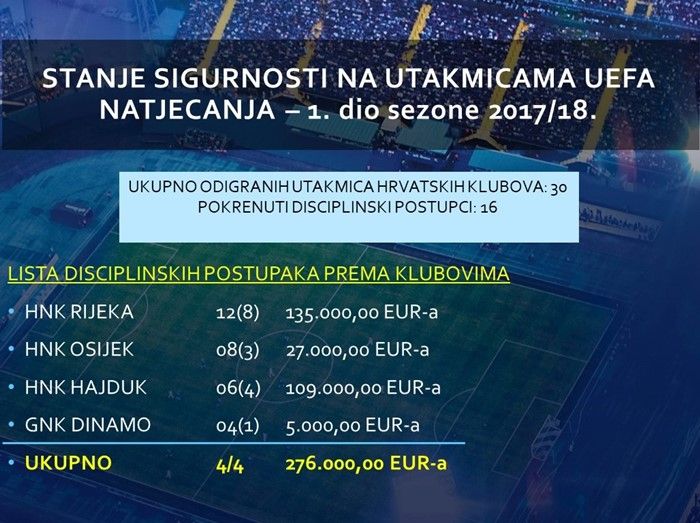The two-day Security and Protection Conference for Croatian football matches has begun in Sisak.
Organized by the Croatian Football Federation, the Conference on Safety and Protection for football matches in Croatia started on Friday in Sisak, reports Gol.hr on February 7, 2018.
An introductory speech to the conference was held by HNS chief executive Damir Vrbanović who, after the end of the program, was asked by Nova TV reporter Stipe Antonijević if HNS plans to hold a match at Split’s Poljud stadium, considering the animosity between Split and HNS.
So, when can we expect a Croatia national team match at Poljud again? Vrbanović replied:
“As soon as conditions are created. In the next few months, i.e. the period when the Croatia national team will play a series of games, one of which is certainly foreseen in Split."

HNS
Otherwise, the desire for the national team players to return to Poljud was once again voiced by Zlatko Dalić and Marijan Kustić, the newly appointed director of competition and infrastructure at HNS. Hajduk President Ivan Kos, however, told them that things might not go as well as they have imagined.
“There is no communication between HNS and the biggest Croatian football club. We have made a document that should open your eyes, and that is the analysis of the management of Croatian football that we have developed in cooperation with many experts. As far as the national team playing in Split, there is a lot of precedences that must happen. There is a need for general changes in HNS - what we currently have are cosmetic changes, and we do not support cosmetics,” Kos replied.
Vrbanović also stressed that there is far more work to be done for the security and protection of Croatian football.
“We are aware that things are still not close to the level we want, regardless of the praise coming from Uefa and MUP. Hooliganism cannot be justified as some ‘romantic idea’, it has no place in the stadiums. HNS cannot solve such problems alone, and there is a need for the leverage of the authorities to show more and more understanding of this. The news headlines should be about our players rather than our hooligans.”

HNS
The highest number of unlawful conduct was recorded by the following club’s organized fan groups: Hajduk (Torcida), Dinamo (Bad Blue Boys), Rijeka (Armada), Osijek (Kohorta) and Istra 1961 (Demoni). The number of new group members that are juveniles, often younger than 16, is growing, and illegal behavior continues outside of football stadiums. Also, there are more frequent cases of fan group members with criminal offenses, says HNS.


